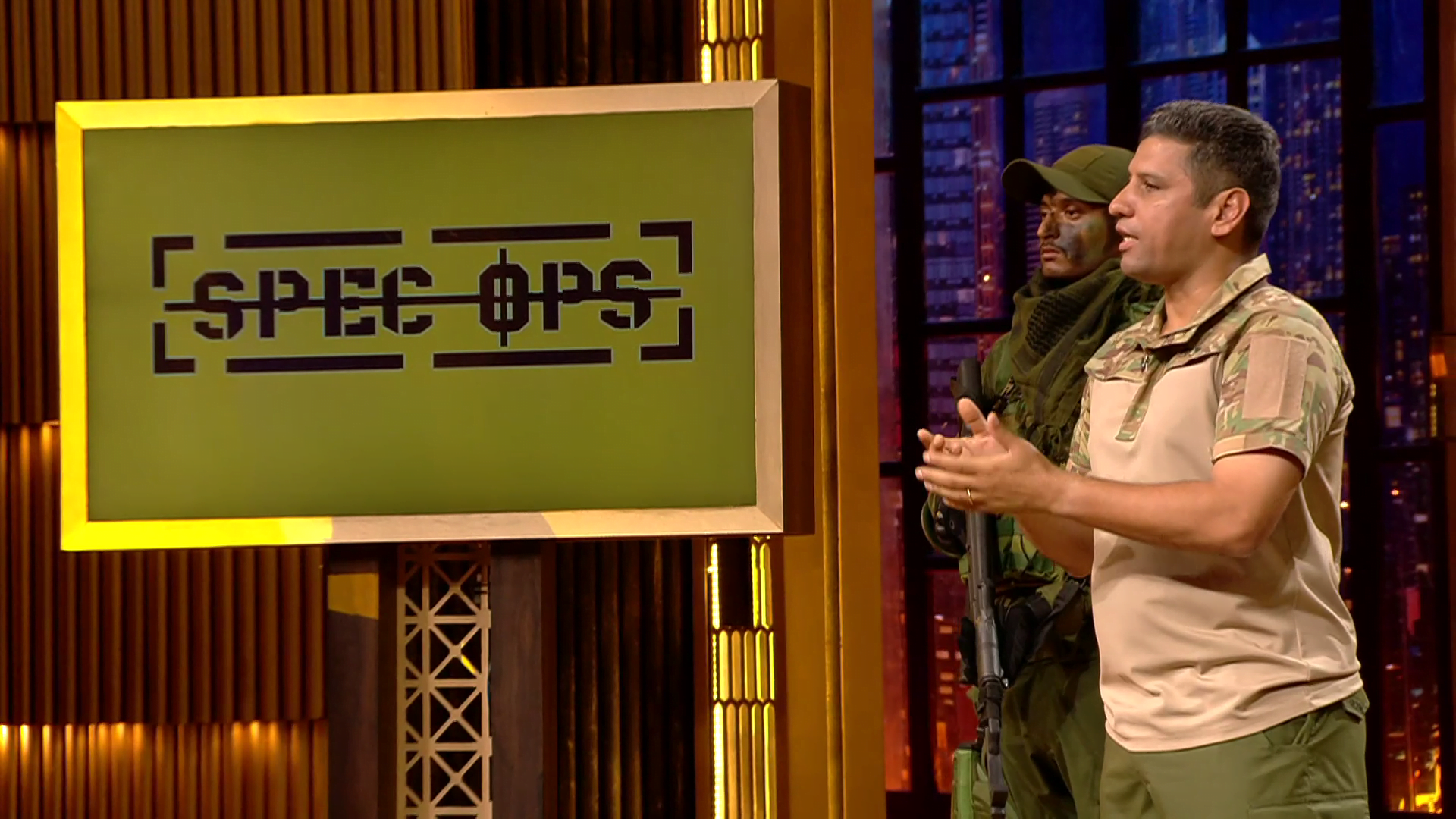Kaabil Kids Shark Tank India Episode Review
Website Information:
- Website:- Kaabil Kids
- Build on CMS WordPress, Woo Commerce Plugin
- SEO Improvement Needed
- ORGANIC TRAFFIC:- 3,764 organic visitors per month
Kaabil Kids Founder:
- Sunil Raina is the founder of Kaabil Kids.

About Kaabil Kids:
- Kaabil Kids is an ed-tech company specializing in chess education.
- Founded by Sunil Raina, it aims to nurture young chess talents in India.
- The company’s focus is on children aged 5 to 15, aspiring to create chess Grandmasters.
Shark Tank India Pitch:
- Kaabil Kids, an ed-tech company specializing in online chess education, presented on Shark Tank India.
- Their goal is to bridge the training gap and create more Indian chess Grandmasters.
- Led by Sunil Raina, the founders sought Rs 70 lakh for a 2% equity stake, valuing the company at Rs 35 crore.
Shark Tank India Air Date:
- Season 3, Episode 42, 19 March 2024
Founder’s Inspiration:
- Sunil Raina’s childhood dream of becoming a chess Grandmaster was stifled by inadequate training opportunities.
- His passion reignited through his son’s interest in chess, leading him to establish Kaabil Kids.
- Teaming up with Grandmaster Tejas Bakre, they offer a curriculum combining technology and innovative methods to make chess learning engaging and accessible.
Focus on Quality Education:
- Kaabil Kids emphasizes the importance of quality chess education in shaping India’s future chess landscape.
- Leveraging Grandmasters’ expertise, they ensure a comprehensive and effective curriculum to nurture young talent.
Sharks’ Interest and Concerns:
- The pitch resonated with the Sharks, highlighting India’s potential for chess growth.
- Concerns arose:
- Anupam Mittal advocated for full computerization using AI, while the founders stressed the importance of human interaction.
- Amit Jain questioned the low equity offered to Grandmaster Tejas Bakre (0.15%) despite his marketing value.
Investment Secured:
- Despite concerns, Namita Thapar and Aman Gupta offered Rs 50 lakh for 5% equity and Rs 20 lakh as debt, an offer accepted by the founders.

Kaabil Kids Shark Tank Review Website Data
| Category | Description | Data/Information |
|---|---|---|
| Website | Platform | WordPress with WooCommerce plugin |
| Organic Traffic | 3,764 visitors per month | |
| Target Audience | Demographics | Children aged 5-15 years in India (urban & rural) |
| Psychographics | Parents seeking to improve their child’s cognitive skills, focus, problem-solving abilities, and nurture a love for chess. | |
| Total Addressable Market (TAM) | Market Size | 8.75 million (estimated) – Children aged 5-15 in India with an interest in chess (5% of age group, assuming a population of 175 million) |
| TAM Penetration | 2% (estimated) | |
| TAM Value | Rs. 1.05 billion annually (estimated) – Assuming an average monthly subscription fee of Rs. 500 | |
| Marketing Strategy | Content Marketing | |
| Content Types | ||
| Social Media Engagement | Utilize Facebook & Instagram for puzzles, online tournaments, and influencer partnerships | |
| Digital Marketing Strategy | Techniques | Targeted social media ads, SEO optimization for relevant keywords (“online chess lessons,” “chess for kids India”), collaborations with educational websites & blogs |
| Distribution Strategy | Models | Freemium model (limited features), subscription model (premium access), strategic partnerships (schools & educational institutions) |
| Advantages (USP) | Unique selling proposition: High-quality online chess education with Grandmasters | |
| Engaging learning experience: Interactive platform with gamified elements and personalized learning paths | ||
| Affordable access: Freemium model and competitive subscription pricing | ||
| Challenges | Competition from established chess academies & online learning platforms | |
| Brand awareness: Building recognition as a trusted name in online chess education | ||
| Parental skepticism: Overcoming doubts about the value of online chess learning | ||
| Future Business Roadmap | Product Diversification | |
| Products | ||
| International Expansion | Strategies | |
| Technology Integration | Techniques | |
| Valuation Roadmap | Strategies | Increase user base, demonstrate revenue growth, expand profitability, develop strong brand recognition, explore strategic acquisitions |
Kaabil Kids: Building Chess Grandmasters in India

Business Potential in India:
- Growing Chess Enthusiasm: India is witnessing a surge in chess popularity. ([Source Needed]) This is fueled by:
- Success Stories: Rising stars like R Praggnanandhaa capture international headlines.
- Increased Media Coverage: Chess tournaments receiving more attention in Indian media.
- Educational Benefits: Growing recognition of chess’s cognitive and strategic benefits for children.
- Large Target Market: India has the second-highest population globally (over 1.4 billion). ([Source Needed])
- Limited Quality Coaching: While enthusiasm is high, access to quality chess coaching, especially for younger children, remains limited. ([Source Needed])
Total Addressable Market (TAM):
- Target Audience: Children aged 5-15 in India with an interest in chess (estimated at 5% of the age group).
- Market Size: Assuming a population of 175 million children aged 5-15 in India ([Source Needed]), the potential target audience is approximately 8.75 million.
- TAM Penetration: Assuming a conservative 2% market penetration (175,000 users), with an average monthly subscription fee of Rs. 500, the TAM translates to a potential annual revenue of Rs. 1.05 billion. ([Source Needed])
Ideal Target Audience:
- Demographics: Children aged 5-15 years in India, across various income levels and locations (urban and rural).
- Psychographics: Parents seeking to:
- Enhance their child’s cognitive skills and strategic thinking.
- Develop their child’s focus and problem-solving abilities.
- Foster a love for chess and nurture potential talent.
Marketing Strategy:
Content Marketing:
- Engaging Blog Posts: Create informative and engaging blog posts on:
- Chess basics and strategies for beginners.
- Benefits of chess for children’s development.
- Interviews with chess Grandmasters and successful students.
- Interactive Videos: Develop high-quality videos showcasing:
- Sample online chess lessons on Kaabil Kids’ platform.
- Student success stories and testimonials.
- Chess tips and tricks from Grandmasters.
- Social Media Engagement: Utilize platforms like Facebook and Instagram to:
- Share chess puzzles and challenges.
- Organize online chess tournaments for Kaabil Kids users.
- Partner with chess influencers and educators for content promotion.
Digital Marketing Strategy:
- Targeted Ads: Utilize social media advertising platforms to target parents of children aged 5-15 with an interest in educational activities.
- Search Engine Optimization (SEO): Optimize website content for relevant keywords like “online chess lessons,” “chess for kids India,” and “benefits of chess.”
- Collaborations: Partner with educational websites, parenting blogs, and children’s activity centers to reach the target audience.
Distribution Strategy:
- Freemium Model: Offer a free basic tier with limited features to attract new users.
- Subscription Model: Provide premium subscriptions with access to advanced lessons, tournaments, and live coaching sessions.
- Strategic Partnerships: Collaborate with schools and educational institutions to offer Kaabil Kids as an after-school program or curriculum supplement.
Advantages:
- Unique Selling Proposition (USP): Combines high-quality online chess education with the expertise of chess Grandmasters, catering to a growing market.
- Engaging Learning Experience: Interactive platform with gamified elements and personalized learning paths to keep children engaged.
- Affordable Access: Freemium model allows everyone to try the platform, while subscriptions are competitively priced.
Challenges:
- Competition: Established chess academies and online learning platforms offering chess instruction.
- Brand Awareness: Building brand recognition and establishing Kaabil Kids as a trusted name in online chess education.
- Parental Skepticism: Overcoming some parents’ potential skepticism about the value of online learning for chess.
Reasons for Success:
- Focus on Quality Education: Curriculum developed and delivered by experienced Grandmasters ensures a high standard of learning.
- Engaging and Accessible Platform: Technology-driven platform with interactive features caters to various learning styles.
- Data-Driven Approach: Utilizing website traffic data and user feedback to continuously improve the platform and content.
Mitigation Strategies:
- Invest in Content Creation: Develop high-quality content that showcases the platform’s effectiveness and the benefits of online chess learning.
- Strategic Marketing and Partnerships: Utilize targeted marketing strategies and partnerships with educational institutions to reach the target audience efficiently.
Product Diversification:
- Kaabil Kids Lite: Develop a simplified, mobile-first app targeting younger children (aged 3-6) with introductory chess concepts and gamified learning experiences.
- Advanced Chess Courses: Introduce specialized courses for aspiring competitive players, covering advanced chess strategies, opening theory, and endgame techniques.
- Chess Coaching Certification Program: Partner with chess academies and institutions to offer online certification programs for aspiring chess coaches, leveraging the expertise of Kaabil Kids’ Grandmasters.
International Expansion:
- Localized Platforms: Develop localized versions of the Kaabil Kids platform with translated content and curriculum catering to specific international markets with high chess interest (e.g., Southeast Asia, Eastern Europe).
- Strategic Partnerships: Partner with established chess organizations and educational institutions in target markets to facilitate market entry and brand recognition.
Technology Integration:
- AI-powered Learning Tools: Integrate artificial intelligence features to personalize learning paths, offer adaptive practice problems, and analyze student performance data for targeted feedback.
- Interactive Chess Puzzles and Challenges: Develop a library of interactive chess puzzles and challenges with varying difficulty levels to enhance problem-solving skills and keep students engaged.
- Virtual Reality (VR) Chess Experiences: Explore the potential of VR technology to create immersive chess learning environments, simulating real-world chess matches and enhancing visualization skills.
Roadmap to Increase Valuation:
- Increase User Base: Focus on aggressive user acquisition strategies to expand the Kaabil Kids user base significantly.
- Demonstrate Revenue Growth: Achieve consistent and sustainable revenue growth through increased subscription adoption and strategic partnerships.
- Expand Profitability: Implement cost-optimization measures and focus on profitability to demonstrate the long-term financial viability of the business.
- Develop Strong Brand Recognition: Invest in brand-building initiatives to establish Kaabil Kids as the leading online chess education platform in India and a globally recognized name in the chess education space.
- Strategic Acquisitions: Explore potential acquisitions of complementary businesses or educational platforms to expand Kaabil Kids’ course offerings and reach new markets.
By implementing this comprehensive business plan, Kaabil Kids can capitalize on the growing chess enthusiasm in India, expand its reach internationally, and become a leading provider of online chess education. This will pave the way for significant user and revenue growth, ultimately leading to a substantial increase in valuation.
Conclusion:
Kaabil Kids’ innovative approach and dedication to quality chess education position them to make a significant impact on fostering India’s next generation of chess champions.



Kaabil Kids Shark Tank India Episode Review